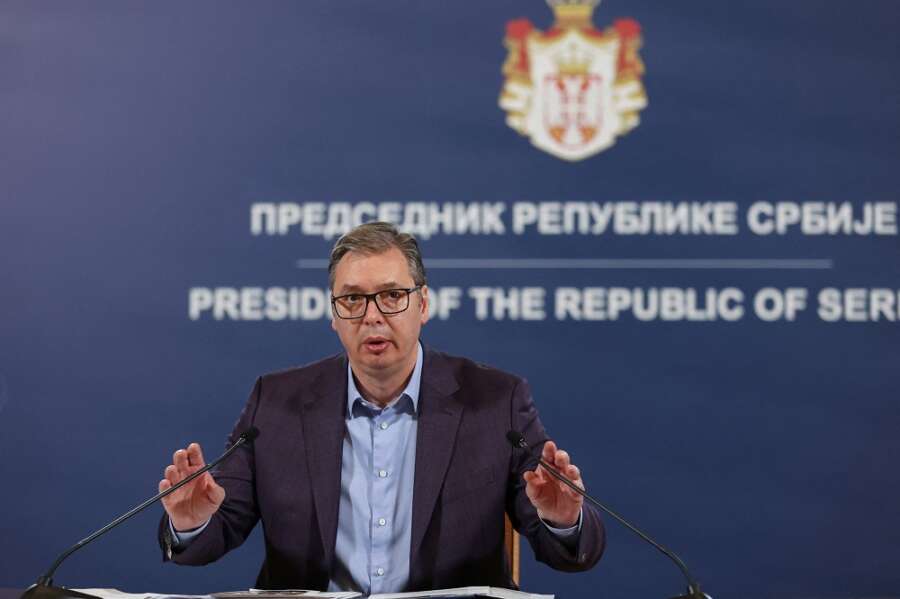
BELGRADE (Reuters) -Serbian President Aleksandar Vucic dissolved parliament on Wednesday and called an early election on Dec. 17, aiming to cement his authority as he works out how to normalise ties with Kosovo, the main precondition for EU membership.
The parliamentary election will coincide with local votes in 65 municipalities, including the capital Belgrade.
Experts say the vote and an absence of a working parliament, will allow Vucic to buy time and delay decisions over ties with independent and predominantly Albanian Kosovo, which Serbia still sees as its southern province.
“We are living in a time in which it is necessary for all of us to be united in the struggle for vital … interests of Serbia, in which we will be under numerous pressures, both because of our position on Kosovo, and because of other regional and global issues,” Vucic said after signing the decree.
Ursula von der Leyen, the EU executive’s president, said during a visit to Belgrade on Tuesday that both Serbia and Kosovo must step up their efforts to normalise relations after the most recent flare-up of violence, if they want to join the bloc.
Serbia also needs to join Western sanctions against Russia over its invasion of Ukraine, root out corruption and organised crime, reform the economy, improve the judiciary, the business climate and its human rights record.
Commentators say Vucic’s move is also aimed at solidifying his own ranks and reforming his ruling Serbian Progressive Party (SNS), whose popularity has been dented after months of opposition protests, following the two mass shootings in May.
According to Belgrade-based Stata pollster, the SNS-led alliance would garner around 44% of votes, and it will have to seek allies to form a majority in the 250-seat parliament.
The centrist opposition bloc Agaist The Violence, comprised of left, green and centrist parties, is seen on 38%.
Ultranationalist and pro-Russian parties are expected to jointly have around 11% of votes, Stata said last month.
Vucic, who last year secured his second five-year term in office, resigned as the head of SNS in May, but he still wields considerable influence over party policies.
Opposition parties and rights groups accuse Vucic, the SNS and its allies of autocracy, oppressing media freedoms, election fraud, violence against political opponents, corruption and ties with organised crime. Vucic and his allies deny the accusations.
After signing the decree, Vucic said it was important for Serbia to “preserve peace, stability, and internal cohesion and (to) show democracy”.
“This campaign is an opportunity to present different ideas, programs, policies … , but which must never threaten vital interests of Serbia,” he said.
(Reporting by Aleksandar Vasovic; Editing by Andrew Cawthorne and Alison Williams)


